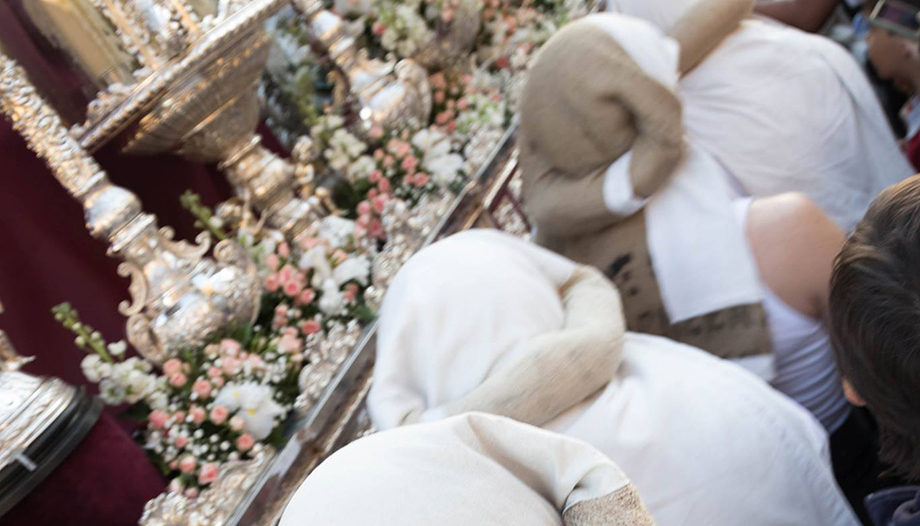Man reaches his fullness only in society. Human nature is the only nature that needs social relationships to be fulfilled. This is explained in the Book of Genesis, at the beginning of the Bible: "It is not good that man should be alone" (Gen. 2.18), he needs to live in society, to relate to others in order to reach his full development as a person. Created in the image and likeness of God (Gen. 1:26-27), the human person is called from the beginning to social life.
Plato reached the same conclusion from the point of view of reason (The Republic) and Aristotle (The Policy). Taken up centuries later by St. Augustine and St. Thomas Aquinas respectively and enriched by Revelation, they are at the basis of the meaning of life and of the moral convictions of the West, of European culture.
The continuity of this line of thought has not been peaceful. Authors, perhaps overrated, such as Hobbes (17th century) or Rousseau (18th century), questioned this differential quality of the person, his necessary sociability. Their approaches may not have had much consistency, but they opened the way to other models of thought, starting with the Enlightenment (18th century), which base the ideals of personal life on nature and reason, synthesized in science. Religion, Revelation, remained outside the social sphere, enclosed in the conscience of each individual and without legitimacy to propose its vision of man and society.
From this point on, a vertiginous dynamic begins. It begins with the unfocused contribution of modern sciences that call into question the dignity and freedom of people and leads to postmodernity, a category that encompasses various totalitarianisms of one sign or another, which try to rewrite human nature and its dignity and impose the civil cancellation of those who dare to think in freedom without assuming the official story, which is what culture is all about. woke.
The Church has not remained indifferent to these counter-cultural currents that reduce the dignity of the person. The first papal encyclical correcting the political and philosophical drift of modern times was that of Gregory XVI, Mirari vos (1832)This was to be followed by the encyclical Quanta cura (1864) of Pius IX, on certain forms of liberalism and the Pascendi (1907) by Pius Xagainst modernism.
From this point on, the pontifical doctrinal production is continuous. All this material, in the form of encyclicals, allocutions, letters, apostolic exhortations, speeches and other interventions, has been forming a system with great internal coherence. At the beginning of this century (2004), at the request of John Paul II, all this doctrine, systematized and organized by epigraphs, is collected in the Compendium of the Social Doctrine of the Church (DSI), a manual that does not belong to the field of ideologies, but to that of moral theology, to guide the conduct of individuals and organizations of people in all aspects of social life.
If the Social Doctrine of the Church The purpose of the Trinitarian life is to guide the behavior of persons in order to their full development, and any association or social group should feel concerned by it, especially the brotherhoods. In them the means must be provided so that man may be introduced by Christ into the Trinitarian life of God and participate in his communion of life and love, together with other men and women in the communion of saints. "That they all may be one as you and I are one" (Jn. 17:1-22).
In the brotherhoods, the fundamental values of social life must be fostered and lived in a special way: truth, freedom, justice and charity; that is their mission. If a brotherhood were to cut off the internal roots of its socialitasIf it were to live far from communion with God in the Trinity, its structuring as a social group would be denaturalized and would fall apart. It would no longer be a social group, a space of humanization, but an addictive environment that resolves itself in the power-opposition dialectic; that proclaims freedom, but in which selfishness takes precedence over the common good; that focuses on short-term activism. Without recourse to a true God who guarantees individuality and sociability, brotherhood would oscillate between the emptiness of individualistic solitude and false identities.
In each of its sections, the Social Doctrine of the Church seems to be especially elaborated for the life of brotherhood. It is worth knowing it, living it and spreading it.
D. in Business Administration. Director of the Instituto de Investigación Aplicada a la Pyme. Eldest Brother (2017-2020) of the Brotherhood of the Soledad de San Lorenzo, in Seville. He has published several books, monographs and articles on brotherhoods.











